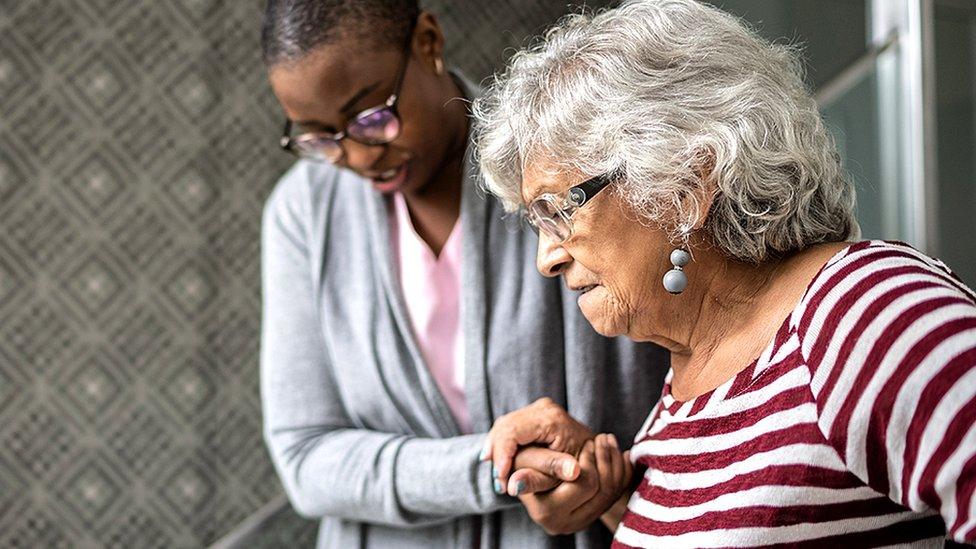Carers in London: 'We struggle every month'
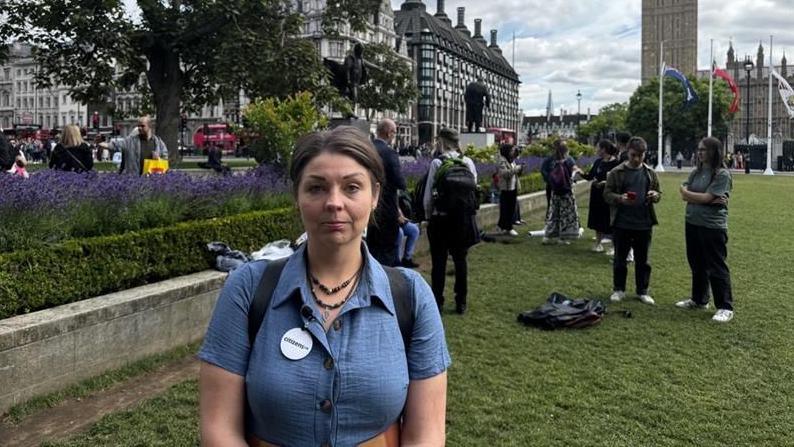
Former carer Suzie Lyle has been rallying in Parliament Square with Citizens UK, for a London living wage
- Published
London carers have said they are "struggling every month" and are calling for reforms in the social care sector ahead of the election on 4 July.
Last year, the vacancy rate in the capital was the highest in the country at 12.1%, equivalent to 22,000 vacant posts, according to Skills for Care.
Former carer Suzie Lyle told BBC London the work did not reflect the pay and called on the next government to pay care workers a London living wage of £13.15 per hour.
Health and social care charity, The King's Fund, found just 39% of care workers in London earn the living wage or above - much lower than the rest of the country.
'It's impossible'
Ms Lyle has been rallying in Parliament Square with Citizens UK, to call for reforms and a real living wage - one that changes annually reflecting the cost of living, external.
"Me and my partner both live and work in London. We have got two children. We work around each other with childcare", she said.
"We struggle and we shouldn't have to.
"Sometimes we have gone to the foodbank. We can't really look forward to things like buying a house or maybe a nice family holiday - it's impossible."
"I was doing 13 hour shifts. Really tough shifts some days and it did not reflect in the pay at all. We were struggling every month.
"To be a carer and to live in London is hard," she added.
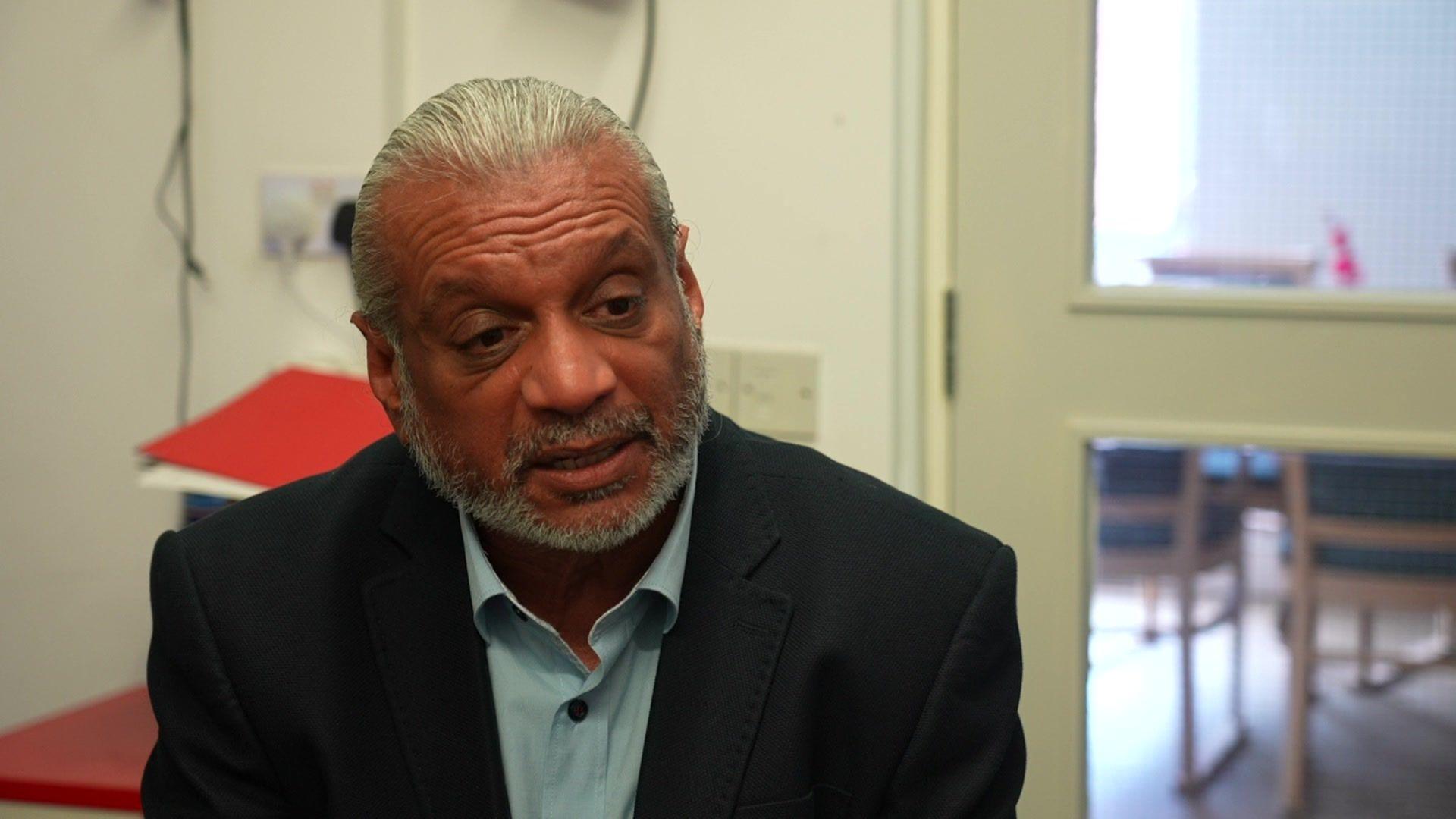
Vinod Patel has run a care home for 21 years and says nobody wants to deal with the "crisis" of care
Vinod Patel has run the Mellows Care Home in Loughton in Essex for 21 years.
“It's been a crisis over the last couple of years - 10, 15, 20 years - and nobody wants to deal with it. So it'll always be a crisis", he said.
“We lost about five or six staff in the last year who have gone to the NHS.
“They [the government] want a Rolls Royce service when really they want to pay for a little Mini.”
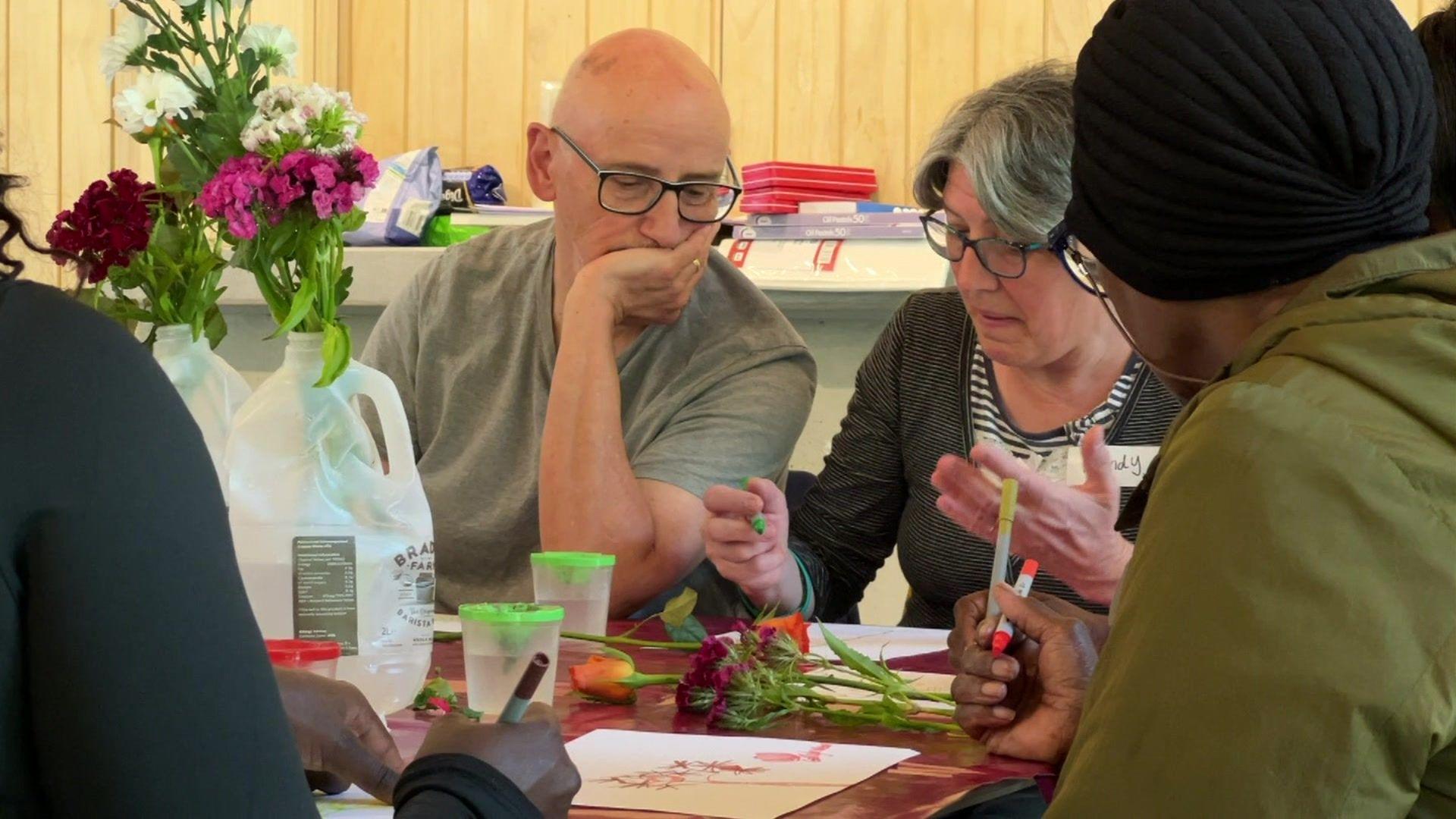
Richard Spear says caring for his wife Wendy who has dementia is "not a sustainable model"
Richard Spear has been married to his wife Wendy for 30 years. Now aged 63, she has early onset Alzheimer's.
Speaking to BBC London at a workshop run by charity Arts for Dementia in Elephant and Castle, Southwark, he said the situation was not sustainable.
"I can only provide so much. I need to take more of a break.
"I think it's not a sustainable model, what I'm doing at the moment," he added.
"Because it does take a strain because it's 24/7 job and becoming more demanding."

Arts for Dementia in Elephant and Castle provides workshops for people with early stage dementia
According to the charity Age UK, 2.6 million people across the country aged 50 and above are living without the care and support they need.
The Department of Health and Social Care estimates that one in seven people are facing costs of more than £100,000 for care.
All parties face £4bn social care 'hole' in England
- Published22 June 2024
Simon Bottery from the charity The King's Fund – a think tank which specialises in health policy said the issue affects everybody.
"None of us knows if we're going to have a stroke tomorrow and need long term support.
"There's no limit on the amount people might have to pay over their lifetime, just for the basic level of social care cost that in many cases, they expected the state would be providing for them."
'I pay £7,000 a month for my mum's care'
Chris Thorndyke, from Chingford, east London, got in touch with the BBC London via Your Voice, Your Vote wanting to know what the next government would do about funding the costs of care home provision.
He said: "My mother is 102 and I had to sell her house to fund care home costs of over £7,000 per month.
"She is incredibly angry as she wanted her grandchildren to benefit from her house sale to help them.
"Her late husband and her worked hard to buy a house and that asset is now paying for her care whilst others with no assets pay nothing."
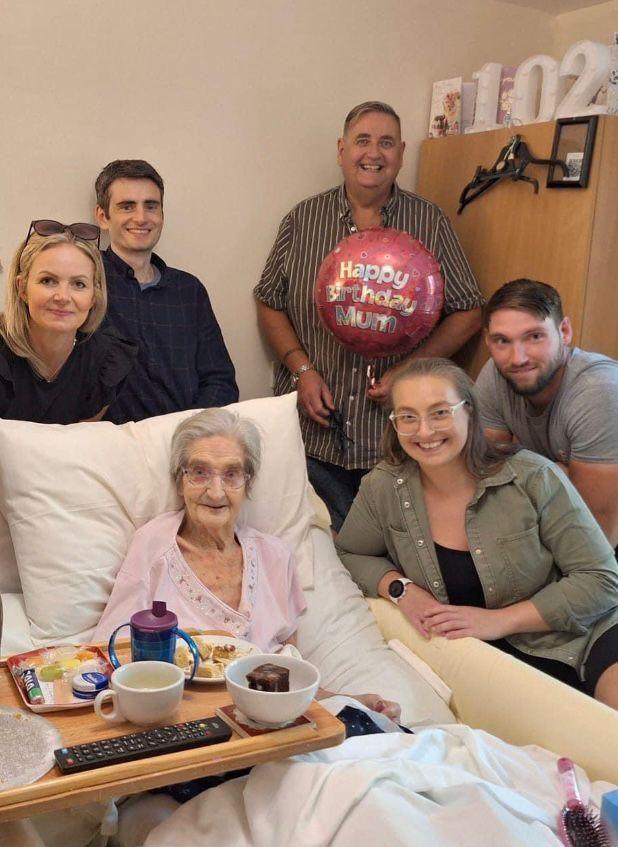
Chris Thorndyke celebrating his mother's 102nd birthday with his family
Four years ago the government announced a plan that would put a cap on the amount someone has to pay for care costs throughout their lifetime.
The Conservatives, Labour and the Liberal Democrats have all said they are in favour of bringing in those reforms after the general election.
Back at Parliament Square and asked what she would do if she had the keys to Number 10, Suzie Lyle, said: "I would make sure that the home care sector has a decent pay and it makes such a difference to how we do our job.
"That's why we are in a situation where we are short of carers because the money's just not worth it - it's not worth the stress.
"We need a real living wage. We need to support our carers who do so much for other people."
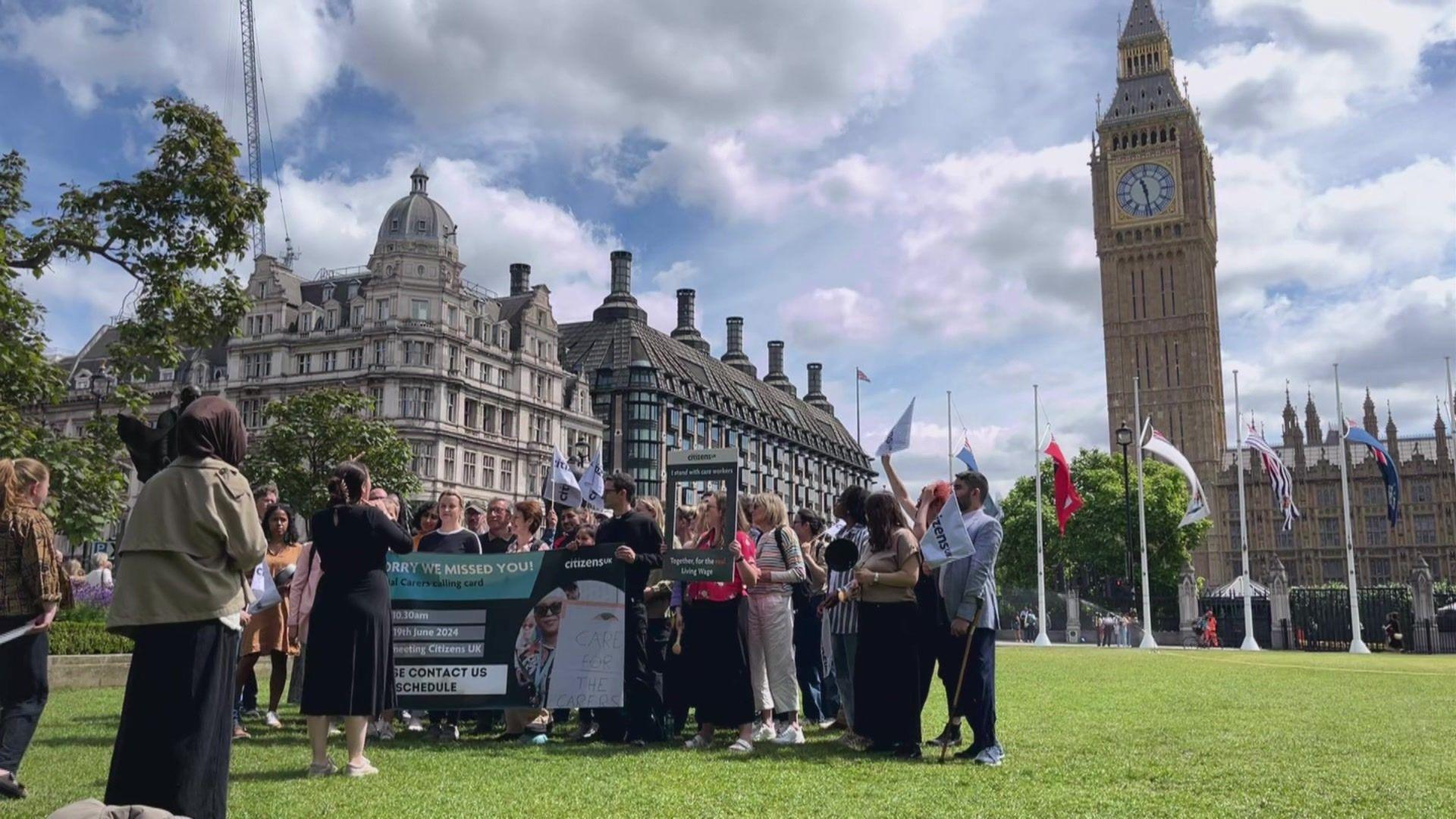
Campaigners rallying for a real living wage based on the cost of living not average earnings
If elected on 4 July, Labour said they will end the workforce crisis in social care, introduce a ten year reform plan, enshrine the principle of "home first" in social care, raise standards across the sector and support unpaid carers.
The Liberal Democrats said they plan to increase funding and reform social care, including a carer's minimum wage set £2 above the minimum wage. They would also create a Royal College of Care Workers.
The Conservative party said that at the next Spending Review, they plan to give local authorities a multi-year funding settlement to support social care.
They added they would make reforms to shape the market for older people’s housing, support unpaid carers and implement a cap to social care costs from October 2025.
The Green party said they would push for free personal care for old age people and those with disabilities, increase pay rates and improve the career structure for carers.
The Reform party said they would simplify social care through a single funding stream, instead of the split between NHS and local authorities.
Listen to the best of BBC Radio London on Sounds and follow BBC London on Facebook, external, X, external and Instagram, external. Send your story ideas to hello.bbclondon@bbc.co.uk, external
More on social care in London
- Published22 January 2024
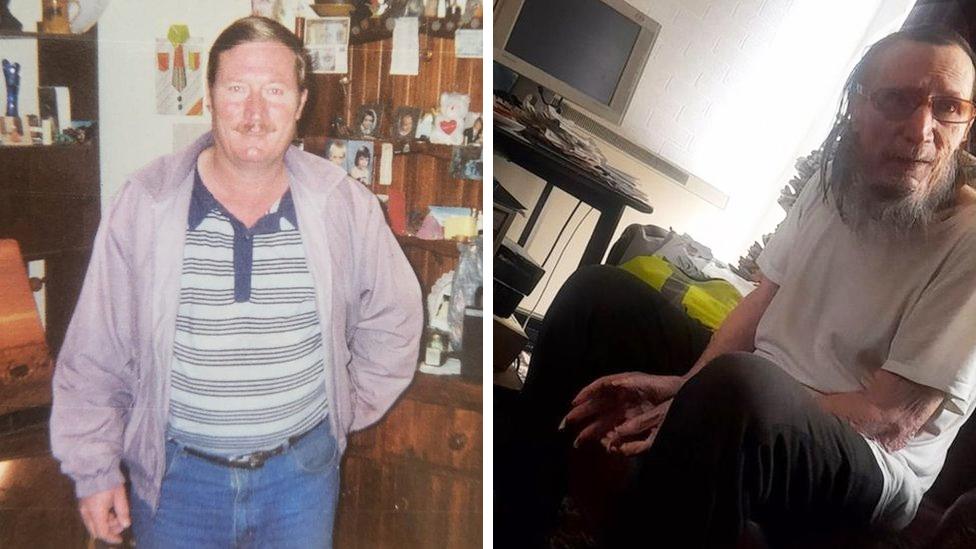
- Published7 September 2021
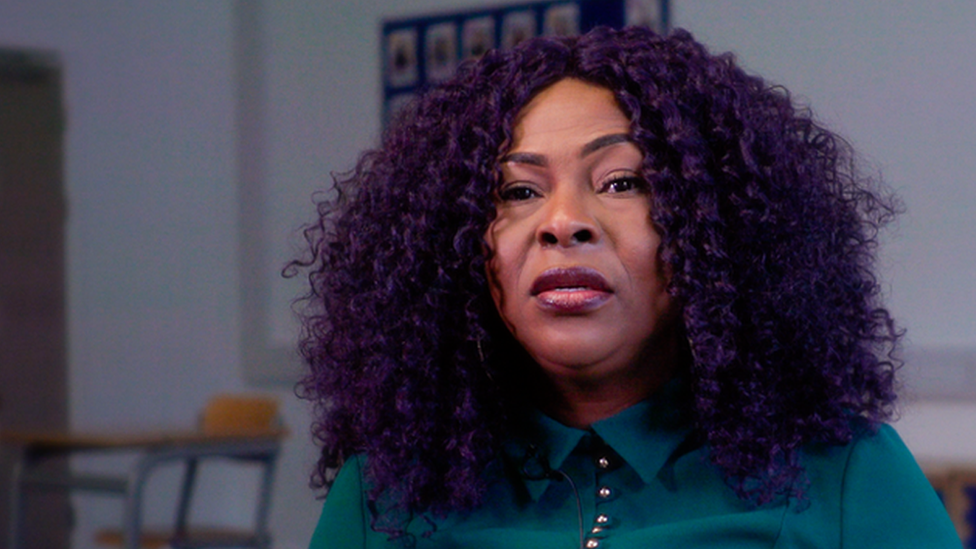
- Published16 November 2023
